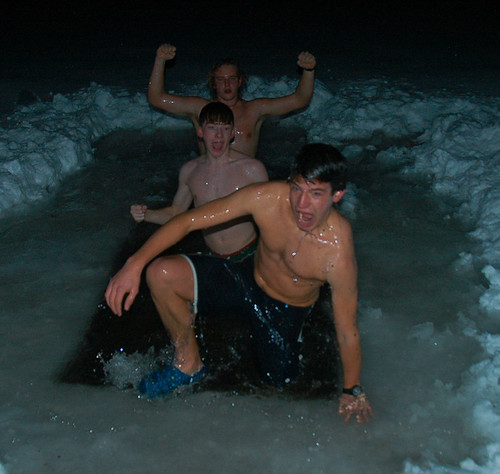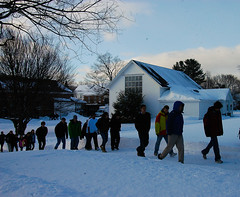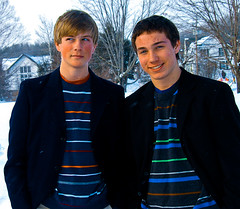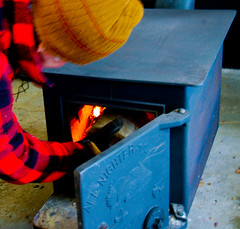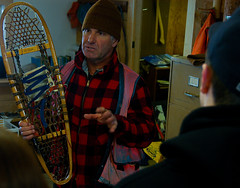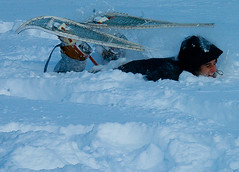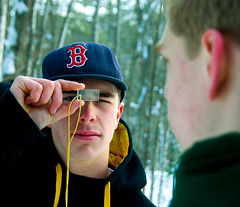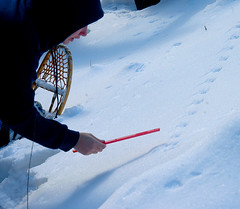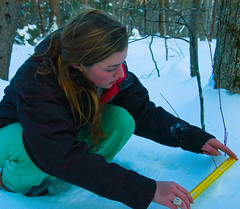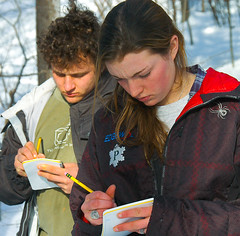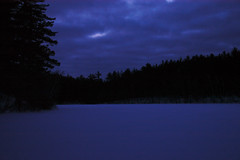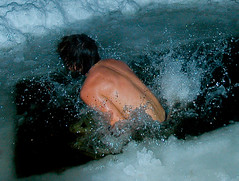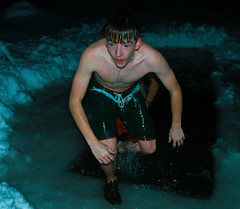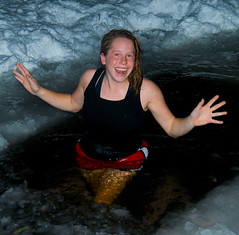In our highly mobile society, people settle in distinct regions based on factors including economy, opportunity and climate. There is a degree to which people living close to the 45th parallel--half way between the equator and the North Pole--enjoy warm summers, glorious autumns, mud season (maybe I'm wrong) and good, hard winters.
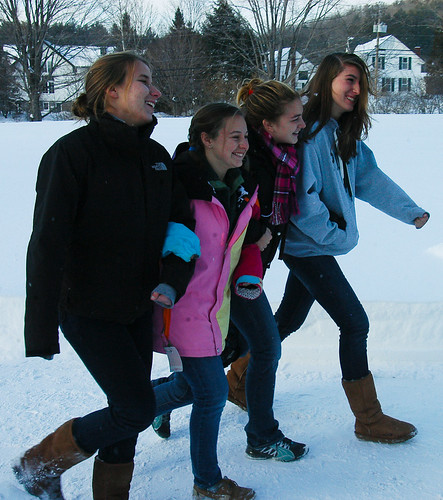
Those of us who embrace New England winters are euphoric today, as we enjoy the best snow conditions in ten months. Wednesday's storm dropped about twenty inches of fine, dry powder on a campus that had exposed ground and dirty snowbanks.
In an exercise of social activism and advocacy, world history students accosted me recently with posters and flyers exposing social injustices in Third World nations.
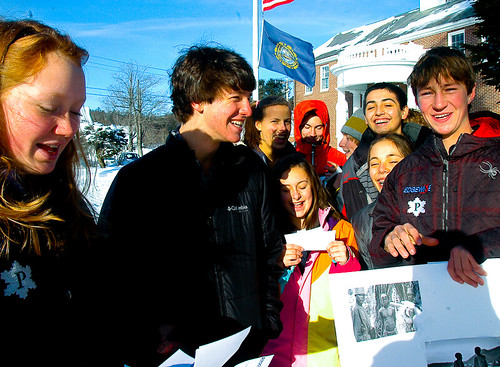
Before students in forestry navigate Proctor woodlands on snowshoes, they need to become familiar with these strap-ons. A quick relay race gets the blood moving in single-digit temperatures.
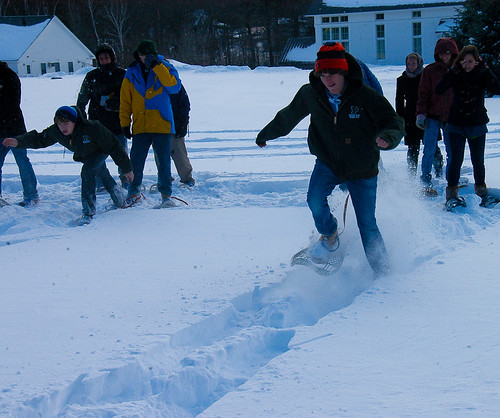
Off to the woods!
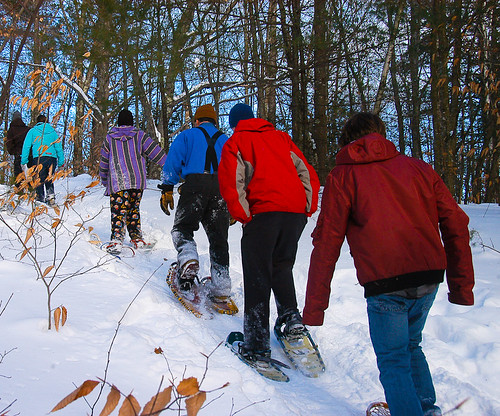
Hatless, Summer uses a prism to estimate the cubic volume of marketable wood in a stand of mixed trees on Slalom Hill.
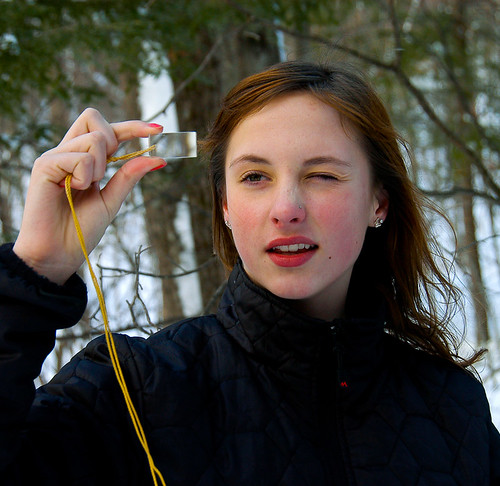
Snow provides a platform on which we can track and monitor the behavior of diverse species. Wildlife science examines a site where a bird dove into the subnivian (under snow) zone for prey.
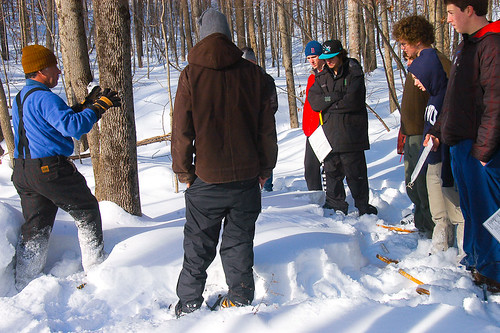
Field guide and ruler in hand, Truman and Courtney examine the stride, track width and related clues to identify the path of red squirrel.
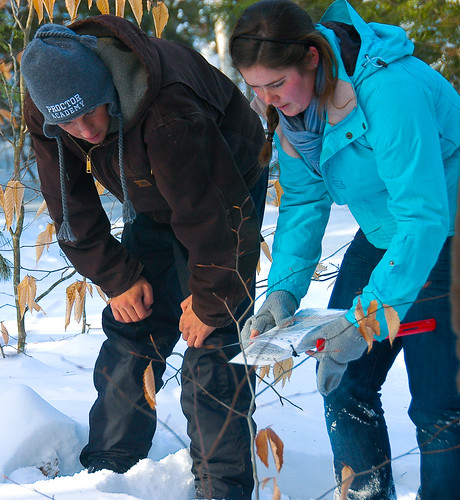
Too often, the media conveys a grim accounting of teenagers as hedonistic and lazy. Yet on Friday mornings, more than a dozen Proctor kids catch a 6:00 AM bus ride to Elbow Pond for a most unlikely ritual: polar swim! After breaking a sweat in a steamy, wood-fired sauna on a bluff just above the east shore, they scamper down to a hole (cut by the Maintenance crew) and plunge into 32-degree water.
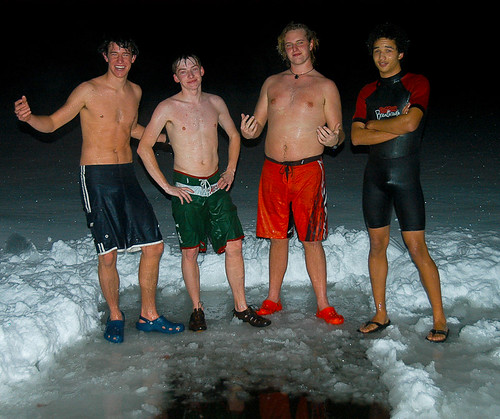
The themometer reads 4 degrees. These kids are embracing winter!
